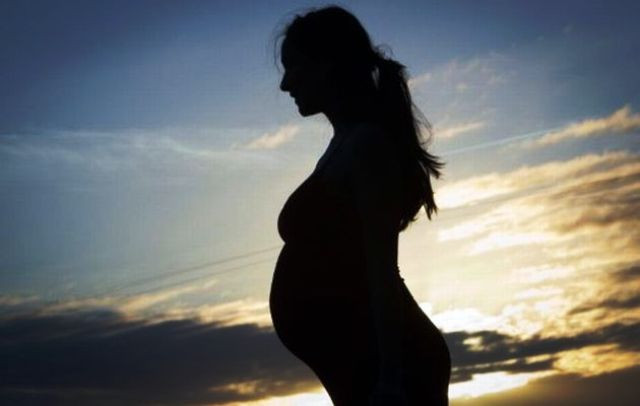Preventing eclampsia: Few measures can save lives of 2,000 pregnant women annually
Govt urged to include magnesium sulphate in list of essential life saving drugs.

“Due to ignorance, our women are dying of a preventable disease,” says Dr Chaudhry.PHOTO: AFP
By including magnesium sulphate in the list of essential life saving drugs and training health workers about its use, the government can save the lives of as many as 2,000 pregnant women who die of eclampsia every year in the country.
Health experts stated this at a two-day workshop on ‘Media Sensitization Trainings on Preeclampsia’ that started here at a local hotel on Tuesday. The workshop has been organised by Intermedia in collaboration with the White Ribbon Alliance-Pakistan (WRA-P).
Eclampsia is a life-threatening complication of pregnancy characterised by seizures due to preeclampsia - a condition in which the blood pressure of a pregnant woman rises after the 20 weeks of her pregnancy and she begins to excrete excess amount of protein through urine (proteinuria).
Unfortunately in Pakistan there are no clinical guidelines or protocols for health care professionals on the use of magnesium sulphate as a first line of treatment in sever preeclampsia and eclampsia, said Dr Rizwana Chaudhry, a senior gynaecologist of Holy Family Hospital (HFH) Rawalpindi. She said if health workers at primary health care centres across the country are given training on the use of magnesium sulphate, the risk of pregnant women developing eclampsia can be halved.
Lack of basic health facilities in rural areas, along with illiteracy, poverty and poor decision making of family members are the major challenges in overcoming eclampsia in pregnant women, Dr Chaudhry said.
In HFH alone, 58 patients suffering from eclampsia were bought in last year, of which nine died, the gynaecologist said. These women could have been saved had they been bought to the hospital in time, she said. “Due to ignorance, our women are dying of a preventable disease,” she lamented.

Teenage girls, women above the age of 40 and those having their first baby are at the high risk of developing eclampsia, said Dr Chaudhry. Around 61% women during their pregnancy do not get complete antenatal checkups, due to which their blood pressure remains unchecked and they suffer from preeclampsia, and later from eclampsia, she added.
“[Eclampsia] is a big point of concern for Pakistan as it would not be able to achieve millennium development goals 4 and 5 by 2015,” Dr Chaurdy said.
People have lost their trust in the primary health care centres due to absence of basic health facilities and professionals, said Dr Amina Khan, a public health expert. As a result, rural population prefers to seek treatment from teaching hospitals in big cities, which doubles the burden on these hospitals. Due to huge influx of patients, doctors are unable to treat every patient on time, in turn leaving them no choice but to seek treatment from quacks and develop complications, she added.
According to statistics, out of every 100 women 48 have never been immunized, 62 do not adopt any birth spacing practice, 70 are anaemic, 76 do not have skilled attendants during child delivery and 88 do not have postnatal checkups.
“If instead of pulling each others’ leg, politicians need to focus their attention on these pressing health concerns,” she suggested.
Published in The Express Tribune, December 26th, 2012.



















COMMENTS
Comments are moderated and generally will be posted if they are on-topic and not abusive.
For more information, please see our Comments FAQ